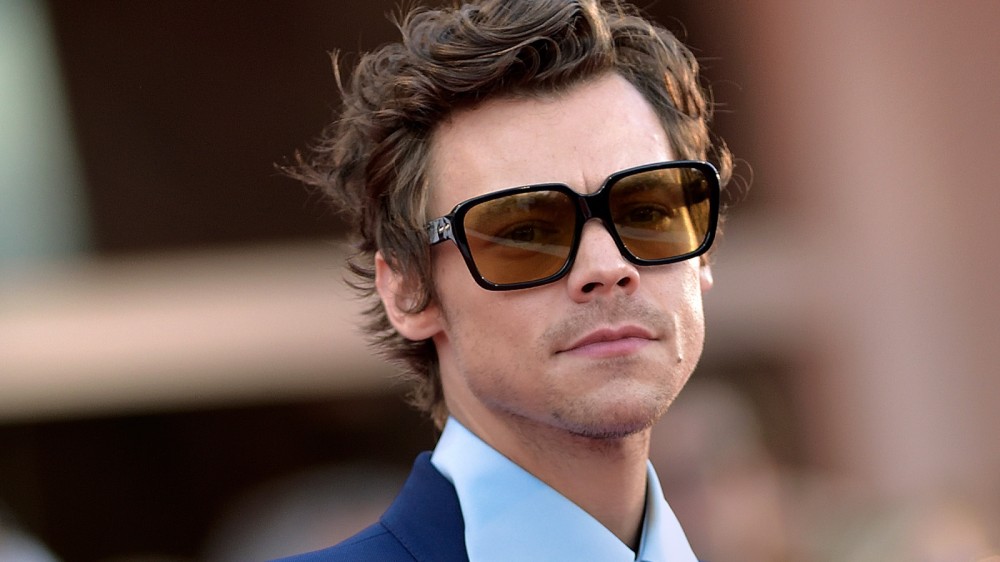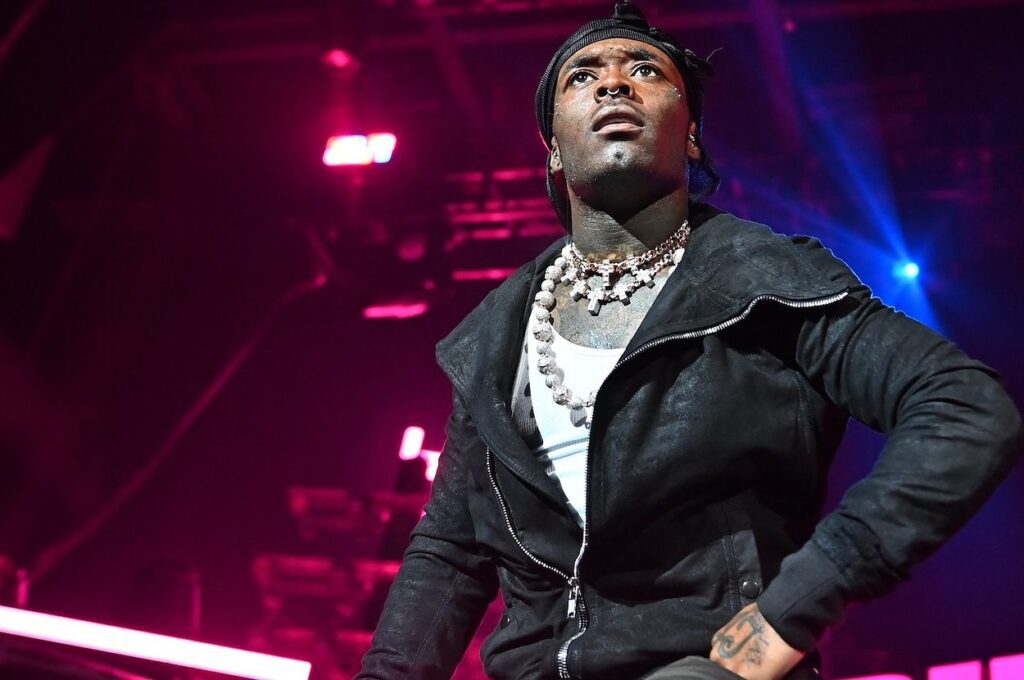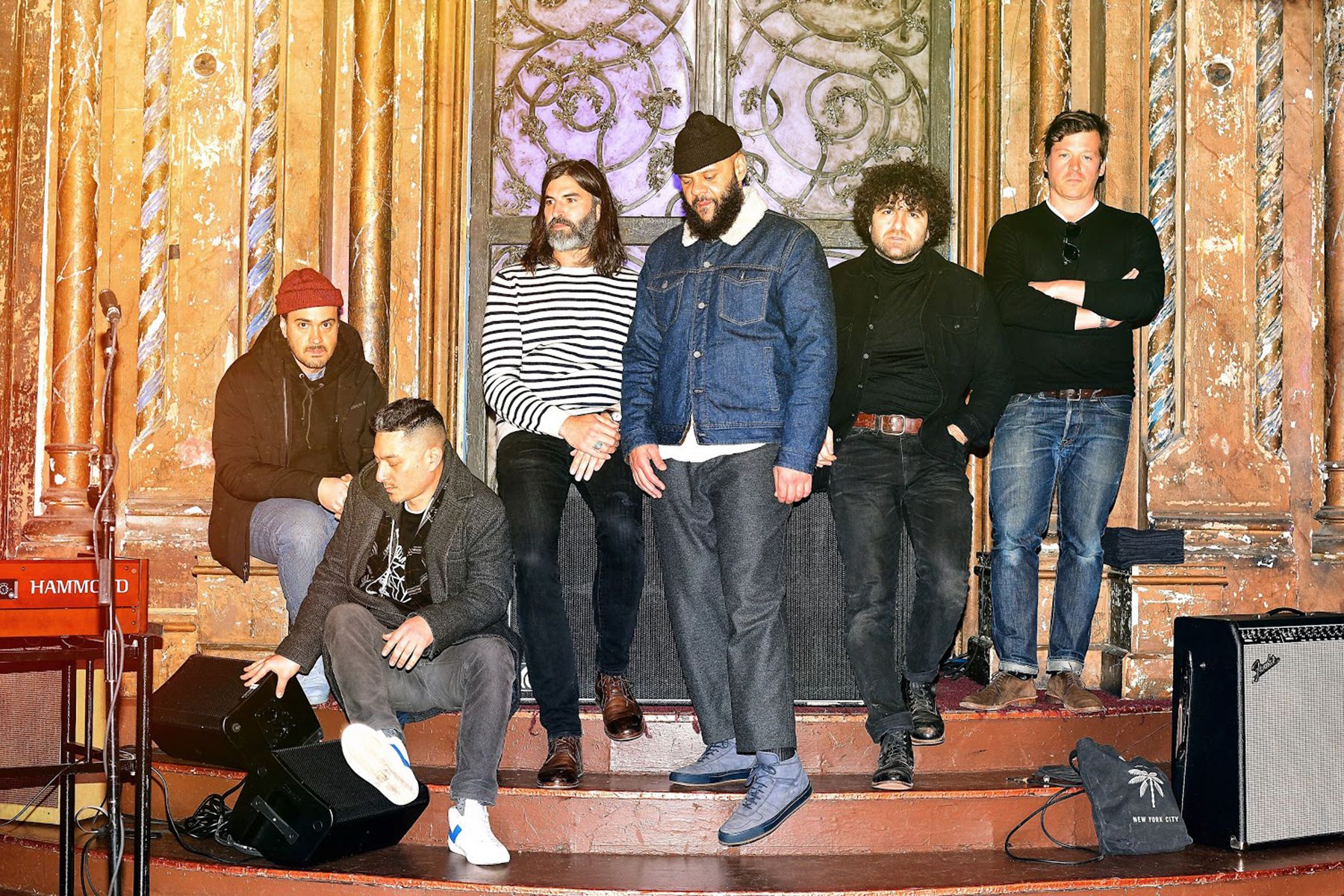The Day After Tomorrow: The Weeknd Cover Story
Here he is: The Weeknd. Like some edgelord of the algorithm era, materializing through clouds of synthetic smoke and digital incense, while somewhere, way in the background, a producer (probably Mike Dean, Max Martin, or Metro Boomin) finds the files that will send The Weeknd’s falsetto soaring into the stratosphere — where it does, in fact, belong. He is that guy. That guy has a new album. It’s called Hurry Up Tomorrow, and it features the likes of Lana Del Rey, Future, Justice, Travis Scott, Anitta, Playboi Carti, as well as the legendary disco-pop-funk-trace imagineer Giorgio Moroder.
Test the algo: The Weeknd is a part of a cohort that includes Teddy Swims’ “Lose Control,” which slides into the queue right after The Weeknd’s (now cut from the tracklist) “Dancing in the Flames,” while Shaboozey’s blunted bite “A Bar Song (Tipsy)” stands near, alongside Rosé and Bruno’s “APT.” Tommy Richman’s Tik-Tok template anthem “Million Dollar Baby” runs with this pack, and Bruno returns with Lady Gaga for their cinematic end-times anthem “Die With a Smile.” By the time “One Of The Girls” (featuring Jennie Kim and Lily-Rose Depp) rolls in—with its short-lived faux scandal over lyrics about breaking skin and spitting in mouths—we’re smack in the middle of pop music’s near-genreless future. This is the world The Weeknd rules.
Or maybe we should start calling him Abel Tesfaye. It’s his real name and he keeps saying he’ll return to it, since he’s been getting weary of his alter ego. Toronto’s favorite dropout is also tired of talk. Like everyone from Frank Sinatra to Frank Ocean, The Weeknd dislikes interviews. “I felt like I had nothing to say,” he told Complex for a cover story in 2013 when asked why he avoided interviews. “I still feel I have nothing to say. I’m the most boring person to talk to.”
So here we are, chasing the ghosts of conversations past through the digital ether, dodging the recent California firestorms, and speaking about his new, 22-track Hurry Up Tomorrow over email. The Weeknd is an exercise in trying to pin down the unpinnable. He resists being coded — or decoded. He’s not trying to boringly break down how he went from anonymous YouTube uploads to breaking Spotify records — faster than you can say XOTWOD. From afar the come-up can feel like an AI fable built on equal prompts of Dante’s Divine Comedy, The Fast and the Furious (on even more actual speed), and Purple Rain. Kid drops out. Kid hustles hard. Kid goes viral. Kid is actually a brilliant multi-hyphenate. Kids sells out whole arenas and still maintains underground energy. Kid completes trilogies. Kid literally makes and literally stays in the pictures — see his recent The Idol, and prep yourself for the forthcoming film based on Hurry Up.
Meanwhile, The Weeknd’s got more monthly listeners than there are people in most countries. By turning emotional turmoil into (again, quite literally) high art, for spinning tales of debauchery into operatic confections — all while winning Grammys and granting strange love to those of us still living for today in what can feel like the last days and times. His take on our accelerated, glitchy era is madcap, maddening, and somehow miraculous. The much anticipated Hurry Up Tomorrow dropped on January 31 like a sonic depth charge: 490,500 first-week units. It’s the strongest opening of The Weeknd’s career, beating his previous high of 444,000 for 2020’s After Hours. The Weeknd has landed 14 tracks from Hurry on the Billboard Hot 100 single chart, led by the nostalgic and vainglorious Playboi Carti collaboration “Timeless.” The Weeknd must love when a plan comes together, because his plans always seem to.
It comes down to the algorithm: Are we making it or is it making us? Did we create that tremolo-laden voice that soars above it all, and now soundtracks our collective descent into whatever comes next? Or is Canadian kid Abel Tesfaye making us in his image? Time could be wasted pondering the location of all our souls. But: Baby, it’s The Weeknd. And the weird-ass party is over here.
–––––––––
On the new album, what song is closest to your soul?
At the this moment it’s “Hurry Up Tomorrow.”
Do you ever think that songs are dead? Or that music is dying?
I don’t think music is dying. It’s actually being created at a rapid pace. I think timeless music is harder to come by since there is so much to absorb.
Do you want to ask? Or be asked?
I like to ask. I have a curious mind which helps me with my creative process.
As a writer, when you are stuck, who (or what) do you turn to? And what are at least three reasons why?
Nothing inspires me more than cinema. It’s the only artform that requires music, picture and writing. It fills my soul more than anything else.
What is the best training for a would-be songwriter/singer?
Learn how to write a song about absolutely anything and make it sound incredible. If you can do that, then you got the job.
On the new album what song took the longest to complete, from inspiration to being “done?”
I don’t remember. It’s hard to keep track of that.
You’ve been talking a lot about exhaustion and stress — how do you manage it?
I’ve been fond of taking naps recently. Astronaut naps. 26 minutes. Turn the whole world off. Turn all the lights off and put your alarm to 26 minutes exactly. No more or less. Works like magic.
After The Idol, what do you think about the criticisms, or do you not gaf?
I believe criticism can be highly constructive, but when you don’t understand what you’re being criticized for, it can be a little confusing.
When deciding to play a despicable character you face the challenge of negative perception.
Sometimes it’s hard to decipher whether the criticism is about a performance, the character itself, or the decision of taking the role. Ultimately, it’s not worth dwelling on.
What if any women writers have been strong influences on your work?
On this particular project I’d say Mary Shelley, Claire Denis, and Lauryn Hill.
Even if you are unaffected by criticism and trolling, what’s that one thing someone can say, or type, that triggers you?
I guess I can’t say or I’d be exposing what triggers me.
Talk to me about Giorgio Moroder’s film scores, and his Donna Summer projects, and what drew you to him for this new album. When you talk about GM’s DNA being in all your music, is that more spiritual, actual, inspirational? Or?
I don’t think any producer has ever been able to balance pop music and film composing quite like Giorgio Moroder. He’s always been THE bar. The melodies for the films he has scored are absolutely infectious — and play a big role in my music.
Taking into consideration an old song like “Initiation”— is it a logical extension of it-ain’t-no-fun-if-the-homies-can’t-have-none energy? And if so, what is our endgame feeling like?
That reference you gave is a party song. What I was making at 19 was horror. I wanted to create something sonically terrifying that got under your skin. With the Echoes of Silence project — I wanted to push the genre as far as I could — and oftentimes when you take creative risks early in your career it has the potential not to age well.
“Timeless” is such a seamless merging of you and Carti’s styles. How did that song come together? What did you learn from collaborating with him?
PHARRELL
PHARRELL
PHARRELL
The album title Hurry Up Tomorrow is giving victorious, expansive James Bond film title. It can also read as pessimistic (like: the present day is terrible, to let turn a page). Can you talk about what we’re hurrying toward?
In Hurry Up Tomorrow I’m speaking from the perspective of my soul, but the meaning can differ depending on the listener. There are no wrong answers.
Why was it important for you to make a film based on your album? Can you talk about the process of working with Trey Edwards Shults and Reza Fahim on the script? What do you want the film to convey?
The film actually inspired the album. It offered me a chance to express a lot that I needed to release, with cinema serving as the ideal medium for exploration. The openness of film allowed me to delve into these themes freely.
Why, at the end of the day, do you think so many human beings on this planet listen to and love your music? What is the reason?
I don’t know but I’m very grateful.
I wonder if the original “Star Wars” trilogy (1977-1983), which wove together elements of mythology, spirituality, and hero’s journey narratives, as well as The Godfather trilogy, an epic examination of power and the American Dream via the lens of organized crime, have influenced your creative vision? If not these works, what art or literature more recent than Dante’s has inspired your imagination?
Those are great sequels, but my trilogy was profoundly shaped by events unfolding in real time; it wasn’t deliberately planned.
Was there a defining moment when you knew you would pursue creative paths — whether as a songwriter, actor, or filmmaker — rather than another career?
There was a defining moment early in my life when I saw people responding positively to my music while working at American Apparel, completely unaware that I was the artist behind it. That experience was validating. Interestingly, my boss back then, Ben, remains a vital part of my creative team 15 years later.
You move fluidly between various creative spheres — songwriting, filmmaking, and performing — each dealing with time differently. How does your understanding of rhythm and pacing in music influence your film structure?
Music is key from when I’m imagining new ideas or working in the editing room. It definitely helps with pacing. But I also love silence. Silence is very powerful. I love awkward silence. I think it’s fascinating.
In what ways has your cinematic work transformed your approach to songwriting?
I learned a lot in the last few years working on sets and collaborating with different voices. It taught me how to better execute my ideas in the studio. I came back with stronger skills and a sharper sword.
How do you balance artistic experimentation with the visceral immediacy demanded by today’s pop culture and social media universes?
It’s not something I worry about.
Please describe, in minute soulful, aural and tactile detail, the experience of performing live. What actually occurs in those moments when you simultaneously create and interpret your own work?
There’s always a surge of anxiety before I go on stage. You’d think it fades with time, but I’m glad it doesn’t. The moment I step on stage, the crowd’s energy takes over, and something shifts. Every emotion converges, and I feel like I’m exactly where I’m meant to be. It’s also important to let the music take over and give them a performance that feels unique to that night, not just a replica of what they hear at home.



